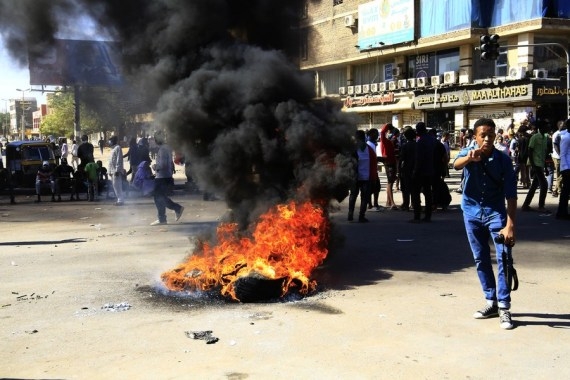Combined together the Africa owes China a deficit of $93 billion dollars, which is predicted to reach $153 billion in the coming years…reports Asian Lite News
China’s growing economic footprint in many developing countries is causing a significant amount of debt repayment crisis after the financial challenges posed by the pandemic. China, which surpassed traditional multilateral institutions as the largest creditor to the developing world, has since the pandemic begun pressuring economically fragile nations in the developing world to repay their debts instead of granting relief for struggling economies, Geopolitica reported.
Specifically, the African continent has been granted excessive debt in order to gain influence over its natural resources. China has over the years become the largest bilateral creditor to African countries. Beijing has provided financial loans for infrastructural projects to more than 32 African nations including Angola, Ethiopia, Kenya, the Republic of Congo, Djibouti, Cameroon and Zambia in some recent years. Combined together the continent owes China a deficit of $93 billion dollars, which is predicted to reach $153 billion in the coming years. Geopolitica reported that Zambia, in particular, has been on the receiving end of China’s economic coercive means. Because of its default of USD 17 billion in 2020 with China as its largest creditor, the country has had to reach out to the G20 grouping to secure debt relief which still remains to be stalled due to Beijing’s objections.
Another African nation, Kenya, has been facing significant internal instability due to overborrowing from China. Kenya’s mounting Chinese debts are causing some serious consequences in the African nation. Beijing, which accounts for around a third of Kenya’s debt, has led many to believe that successive Kenyan governments have over-borrowed for over-priced projects, Geopolitica reported.
This has not only left the East African nation in excessive debt, but it has overburdened the national economy as well, leading the general public to call for a transparent and accountable reassessment of Chinese investments in the country.

Geopolitica reported, South Asian countries like Sri Lanka and Pakistan have been struggling with their economic instability due to the excessive debt burden induced by Chinese finances too. For Colombo, last year a month-long scarcity of essential items that wreaked havoc on its population was in part caused by severe debt intake from Chinese investment banks. Up until 2020 Sri Lanka had borrowed up to 4.6 billion dollars, over and above a loan of $500 million in both 2020 and 2021 each, in order to ease off the strain on the island’s foreign reserves. The two countries also signed a currency swap deal of $1.5 billion in 2021.
Yet, as the president of Sri Lanka himself claimed, Beijing had responded negatively to a 1.5 billion dollars credit line that it had agreed to over a year ago. The government’s call of seeking a $1 billion dollar loan to buy essential items for the country too was ignored in times of economic difficulties for the island nation.
For Pakistan, one of China’s closest allies in the region and also home to its largest investment in the form of the China-Pakistan-Economic-Corridor (CPEC), its cordial bilateral relationship with China has gone on to cost its economic freedom, which now seems to be dictated from Beijing. However, China’s reliability as a partner had been put into question when media reports suggested that China had refused to assist Islamabad in its request to renegotiate power purchase agreements, further destressing Pakistan’s already struggling economy significantly.
The IMF, on the other hand, has asked both Sri Lanka and Pakistan to renegotiate their deals on energy and infrastructure plans with China in the wake of these nations seeking urgent financial assistance from international institutes. Moreover, Beijing is yet to live up to its pledge of re-issuing loans to Pakistan amounting up to $4 billion and is yet to respond to Sri Lanka’s plea for a USD 2.5 billion credit support.
These continuous trends of debt trap diplomacy have indeed brought forward the malicious details of Chinese intentions, whose loans to developing countries at commercial rates higher than the market rate with the promise of easy access to finances have a far deeper consequence for the recipient nation.
The severe indebtedness of countries ranging from the African continent to Asian countries has given China significant leverage, not only in these specific regions, but it has also brought to influence in international forums where such countries have to invariably side with Beijing due to its stifling influence over the indebted country.
Moreover, China’s tactics of exemplifying white elephant projects that have generally been rendered useless around the world have also encapsulated true Chinese intentions of making developmental promises that more often than not fail in generating revenues.
China’s growing influence on the developing world through such coercive means is not only detrimental to the global economy, but it is a dangerous pathway that requires to be countered through a collective effort of like-minded democratic nations.
The developing world needs to stand up to the Chinese strategy of providing unfavourable loans with conditions that intend to cripple economies and push them further into a debt burden.
Such plans can only be tackled when the developing countries attempt to see beyond short-term economic gains and view the treacherous path China has invariably embarked upon.
Thus, it is important that Chinese tactics are seen in the light of what it actually intends to do, i.e. destabilize internal economies to subsequently gain a stronghold over sovereign national economies and influence their decision-making processes. (ANI)














